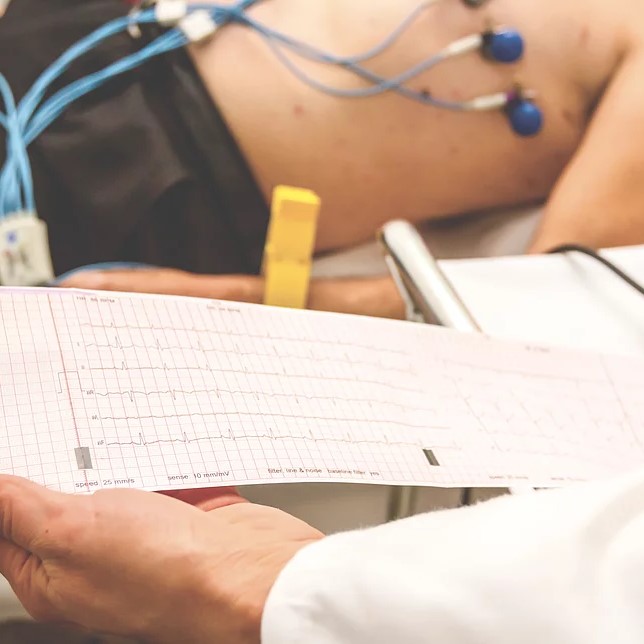Clinical Cardiology
Get away with all the suspicions you have regarding your heart health by undergoing detailed evaluation by your cardiologist.
Symptoms that require clinical cardiovascular examination
Chest Pain
During your clinical cardiac examination, the cardiologist will check whether or not your cause of chest pain is cardiac. The main symptoms of myocardial ischemia include strangling, burning or squeezing sensation. This is quite different from the common symptoms of pleuritic pain, such as stabbing, sharp, relieved when sitting and increased when excited.

Shortness of breath
Palpitations
Note: There are numerous other symptosm that patients complain of such as edema, claudication, syncope, etc.
Process of clinical cardiology
After measuring your body weight and blood pressure, he will check your heartbeat and examine your blood vessels and lungs’ health.
Clinical cardiology covers both non-invasive and invasive (though rarely) tests to find the root cause of the problem projected.
Some of the tests performed during the clinical heart examination are:
Echocardiogram (ECG):
Create images using sound waves of the heart to analyse its proper functioning.
Ambulatory ECG:
Tracks and records your heart activity during movement. The test unveils an unusual (abnormal) heart rhythm.
Cardiac catheterization:
It is a minimally invasive test performed during clinical cardiology when the above tests and X-rays do not provide answers A small tube is placed inside your body – close to your heart. The catheter or tube photographs your heart in function.
After the diagnosis
Did you relate to any of the above-mentioned symptoms? If yes, visit us for a detailed clinical cardiac examination by one of the best heart specialists in the city, Dr Jagadesh Madireddi.
Let’s start a conversation…
We understand the importance of listening.
Feel free to contact us
